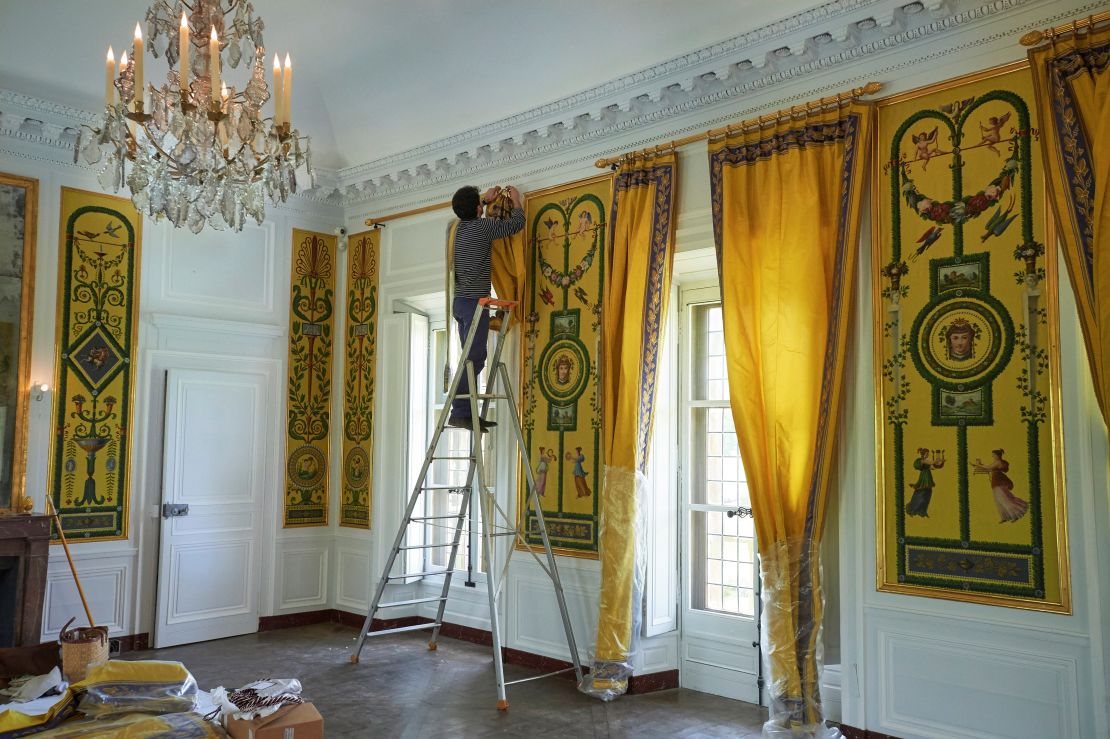One after the other, France’s three richest families opened their checkbooks and pledged a combined $565 million to rebuild the fire-ravaged Notre Dame cathedral in Paris.
The first mega donation, for €100 million ($113 million), was announced by luxury group Kering and the Pinault family. It was followed by €200 million ($226 million) from Bernard Arnault, the world’s third richest man, and his company, LVMH. That was matched hours later by the Bettencourt Meyers family, which controls L’Oreal.
The donations should go a long way to restoring Notre Dame. But they’ve also sparked a debate about wealth, taxes and the particular brand of philanthropy practiced by France’s richest families.
Tax controversy
Attention shifted quickly this week from the generosity of the pledges to whether the donors would claim generous tax benefits available in France.
Under French law, individuals can deduct 66% of a charitable gift on their taxes, while businesses can claim back 60%.
For every corporate gift of €100 million ($112 million), that’s €60 million ($68 million) the state doesn’t receive in tax, explained Anne-Claire Pache, a professor who specializes in philanthropy at France’s ESSEC Business School.
Critics argue the donations meant to repair Notre Dame would be better spent on social programs to help the poor in a country where rising inequality has contributed to the outbreak of recent street protests.
“While Arnault and Pinault run a publicity campaign playing the donation race, we forget that the greatest part of these donations will be the responsibility of all the French people through tax cuts,” Julia Cagé, an economics professor at Sciences Po, said on Twitter.
The Pinault family, which controls luxury brands including Gucci and Yves Saint Laurent, said Wednesday that it would not claim the tax deduction. Louis Vuitton and Christian Dior boss Arnault has suggested the same.
“Pettiness and jealousy” are outweighing the common good, Arnault said Thursday at a meeting of LVMH (LVMHF) shareholders. In other countries, the company would be congratulated, he added.
L’Oreal (LRLCF) declined to comment on whether the Bettencourt Meyers family would seek a deduction.
History of giving
Big donations to prestige projects in Europe have long been important to French luxury brands.
LVMH and Kering (PPRUF) both rely on theirassociation withFrench heritage as they compete for market share, according to Oliver Chen, a retail and luxury analyst at Cowen, an investment bank.
Two buildings in Versailles that were personal favorites of Marie Antoinette reopened to the public last year following restorations that were funded by LVMH’s Maison Dior. The Pinault family is set to launch its personal collection of contemporary art in the landmark Bourse de Commerce building this fall.
“It’s a demonstration of doing well and doing good,” Chen said. “It makes sense for the business, too.”

Still, the contributions to Notre Dame were “unprecedented,” according to Pache. She noted the scale and speed of the donations signaled a rare cultural “emergency.”
Adrian Palmer, a professor who studies marketing and reputation at the University of Reading’s Henley Business School, said the companieswill face pressure to explain how their donations will be used.
“It needs a little bit more nuance,” Palmer said. “How is this money going to be used for the good of the country?”
Wealth in France
The backlash over the donationsreflects an intense debate in France over rising wealth inequality and taxation.
The families behind LVMH, Kering and L’Oreal are worth an estimated $181 billion, according to the Bloomberg Billionaires Index, and the pledges to Notre Dame amount to less than 1% of their fortunes.
French President Emmanuel Macron has been under siege for months from “gilets jaunes” or “yellow vest” protests that were sparked by anger about rising gas prices and taxes.
They have since grown into a wider challenge to Macron’s authority.

Since the protests began, the president has said he would raise the minimum wage and scrapped a tax hike on pensions, though he’s resisted calls to reinstate a wealth tax. He was set to make a policy address on Monday before the fire at Notre Dame broke out.
Some in France want Macron to go much further.
One candidate in the country’s 2017 presidential contest, Jean-Luc Mélenchon, had proposed a 100% tax on income above €400,000 ($425,000). France already has some of the highest rates of income tax in the world.
Many wealthy individuals have taken their money elsewhere. In 2018, about 3,000 rich individuals left the country or began to live there for less than half the year, according to a study from research group New World Wealth.
For billionaire philanthropists, such an environment requires delicacy. Charitable donations could be read by the public as another show of opulence.
“At the moment, all eyes are on the companies, who just spent big money,” Palmer said.
Martin Goillandeau contributed reporting.




















